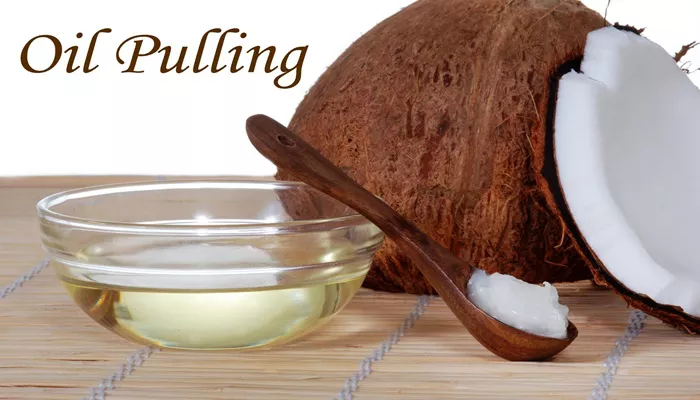Periodontal disease, commonly known as gum disease, affects millions of people worldwide. It occurs when bacteria in the mouth cause inflammation and infection of the gums and surrounding structures. The condition can range from gingivitis, which is a mild form of gum disease, to periodontitis, a more severe form that can lead to tooth loss if untreated. Given the prevalence of periodontal disease, many individuals seek various treatment options, including alternative therapies. One such practice gaining popularity is oil pulling, an ancient oral health technique originating from Ayurvedic medicine. This article explores the efficacy of oil pulling in treating periodontal disease, examining its benefits, mechanisms, and the existing scientific evidence.
What Is Oil Pulling?
Oil pulling involves swishing a tablespoon of oil in the mouth for a period of time, usually 15 to 20 minutes, before spitting it out. The practice is thought to help remove harmful bacteria and toxins from the oral cavity. Traditionally, sesame oil or coconut oil is used, but other oils such as sunflower or olive oil can also be employed. The process is simple: after waking up and before eating or drinking, individuals can perform oil pulling as part of their daily oral hygiene routine.
How Does Oil Pulling Work?
The mechanism behind oil pulling is not entirely understood, but several theories attempt to explain its potential benefits:
Mechanical Action: Swishing oil in the mouth may physically dislodge plaque and bacteria from the teeth and gums, reducing the overall bacterial load.
Emulsification: Oil can mix with saliva and form an emulsion, which may help trap and remove particles and toxins from the oral cavity.
Antibacterial Properties: Some oils, particularly coconut oil, contain antimicrobial compounds (like lauric acid) that can inhibit the growth of harmful bacteria in the mouth.
Improvement of Saliva Production: Oil pulling may stimulate saliva production, which helps wash away food particles and bacteria.
The Link Between Oil Pulling And Periodontal Disease
The relationship between oil pulling and periodontal disease is an area of growing interest. Periodontal disease is primarily caused by the accumulation of plaque and bacteria along the gum line. Regular oil pulling may help reduce plaque formation and improve gum health.
However, it is essential to understand that oil pulling should not replace traditional oral hygiene practices, such as brushing and flossing.
Benefits of Oil Pulling for Oral Health
1. Reduction of Plaque
Several studies suggest that oil pulling can help reduce plaque accumulation in the mouth. A study published in the Journal of Clinical and Diagnostic Research found that oil pulling significantly reduced plaque levels and gingivitis in participants after 30 days of daily practice.
SEE ALSO: Can Loose Teeth From Periodontal Disease Be Saved?
2. Improvement in Gum Health
Regular oil pulling may lead to improved gum health by reducing inflammation and bleeding. A study published in the Indian Journal of Dental Research noted a decrease in gingival index scores among participants who practiced oil pulling regularly.
3. Bad Breath Control
Oil pulling may also help combat bad breath, a common symptom of periodontal disease. The antibacterial properties of certain oils can help neutralize odor-causing bacteria in the mouth.
4. Affordable and Accessible
Oil pulling is an inexpensive and easily accessible practice that requires no special equipment or training. Individuals can perform it at home, making it a convenient option for many.
Limitations of Oil Pulling in Treating Periodontal Disease
1. Lack of Robust Scientific Evidence
Despite some positive findings, more extensive and well-controlled studies are needed to establish the effectiveness of oil pulling in treating periodontal disease definitively. Much of the existing research is limited in scope and quality.
2. Not a Substitute for Traditional Treatments
Oil pulling should not be viewed as a standalone treatment for periodontal disease. It should complement, rather than replace, established oral hygiene practices such as brushing, flossing, and regular dental check-ups. Individuals with periodontal disease should follow their dentist’s recommendations for treatment, which may include professional cleanings, scaling and root planing, or surgical interventions in more severe cases.
3. Potential Risks
While oil pulling is generally considered safe for most individuals, some people may experience adverse effects, such as:
Gastrointestinal Issues: Swallowing oil can lead to stomach upset or diarrhea.
Allergic Reactions: Some individuals may be allergic to certain oils, leading to irritation or other allergic reactions.
Aspiration Risk: There is a risk of inhaling oil into the lungs, which can lead to aspiration pneumonia, especially in individuals with swallowing difficulties.
How to Practice Oil Pulling Safely
If individuals choose to incorporate oil pulling into their oral hygiene routine, they should follow these guidelines to ensure safe and effective practice:
Choose the Right Oil: Select a high-quality oil, such as organic coconut oil or sesame oil. These oils have favorable properties for oral health.
Timing: Perform oil pulling in the morning on an empty stomach, before eating or drinking anything.
Amount: Use about one tablespoon of oil for swishing.
Duration: Swish the oil for 15 to 20 minutes. Avoid excessive swishing, which can lead to jaw fatigue.
Spit It Out: After swishing, spit the oil into a trash can rather than the sink to avoid clogging plumbing.
Rinse: Rinse the mouth thoroughly with water afterward to remove any remaining oil and bacteria.
Brush Teeth: Follow up with regular brushing and flossing to maintain optimal oral hygiene.
Conclusion
Oil pulling is an ancient practice that may offer some benefits for oral health, including potential reductions in plaque and improvements in gum health. However, while it may serve as a supplementary measure, it should not be considered a substitute for professional dental care or established oral hygiene practices. Individuals with periodontal disease should consult with their dentist to develop a comprehensive treatment plan tailored to their specific needs.
Related topics:

